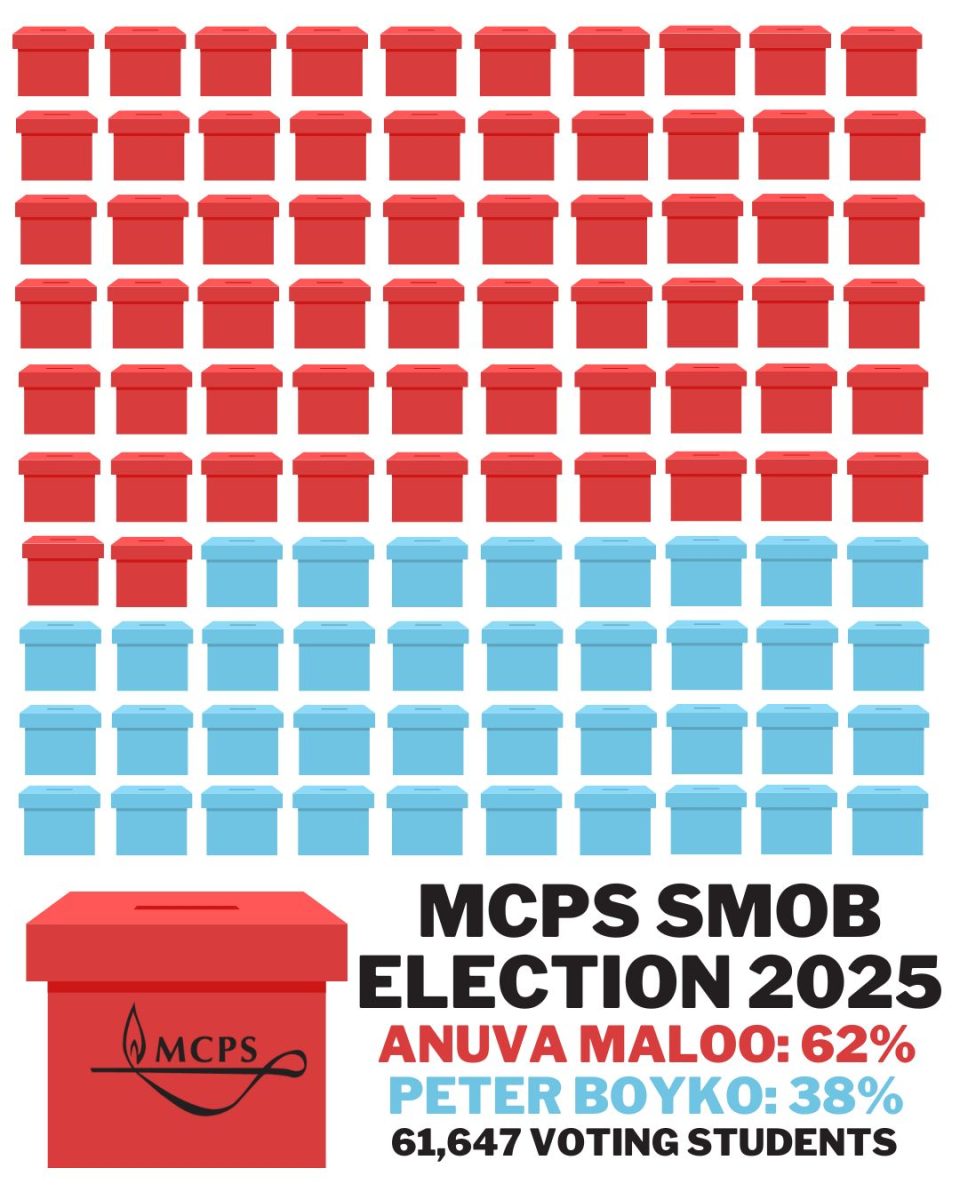Externally, sophomore Dylan Cronkhite embodies a typical teenage boy. He skateboards, plays the saxophone at the Strathmore Music Center and engages in RM’s Model United Nations club. But Cronkhite’s kidney is failing. And he urgently needs a kidney transplant. He and his family are actively seeking a match to step up and be his donor.
At just two years old, Cronkhite underwent a kidney transplant surgery. His uncle fit the criteria to be a match, hence saving the life of his nephew. However, Cronkhite’s kidney has begun to become more limited in its function. This was something his doctors and family had anticipated; however, Cronkhite’s situation is becoming more critical and he needs a donor soon.
“For a long time, it wasn’t really something I thought about until very, very recently with everything that has been happening,” Cronhkite said.
There are multiple signs and symptoms of kidney failure that can develop over time, such as fatigue and weakness, nausea and loss of appetite. Loved ones of Cronkhite have begun to notice how his health condition influences his life.
“He’ll be less inclined to do stuff that he used to do,” sophomore Charlie Kerchner, Cronkhite’s best friend said. “He’ll be less inclined to skate…now he’s tired.”
While some transplanted organs can remain effective for the recipient’s entire life, many do not. It is very common, especially in kidney transplants, for patients to receive additional transplants. Studies have demonstrated that living donor kidneys tend to fail about 10-13 years after the recipient’s surgery.
Most people wait three to five years for a kidney transplant from a deceased donor. However, receiving a live or direct donation can shorten a patient’s wait time. One option for Cronkhite is receiving a kidney donation through a paired exchange, which is done when incompatible donor-recipient pairs are matched with other pairs and exchange donors. This allows for incompatible recipients to still be able to receive a donation despite not being a match with their intended donor.
The process of being cleared to donate a kidney can be extensive, due to the abundance of medical and psychological tests, all designed to ensure that someone can safely donate. In general, a kidney donor must be in excellent physical and mental health, possess two normally functioning kidneys and be 18 years or older. If individuals choose to donate after being cleared, donation is regarded to be an overall safe and effective procedure.
“Any surgery has risks…[but] it’s one of the safer transplants with a high success rate. There’s also a recovery time,” Anatomy and Physiology teacher Ms. Allison Adams said. “It is a very generous gift if you chose to be a live donor.”
Living donors can donate a kidney or part of a liver. Kidney donation, at this point, is routine and statistics show kidney donors live longer than average.
Having been a transplant recipient for most of his life, Cronkhite has not allowed it to limit his experiences and lives a normal life. Skateboarding has been an enjoyable outlet for him over the past four years. Cronkhite also has participated in sports, including lacrosse, basketball, baseball and enjoys biking and skiing.
Additionally, he is optimistic about his recovery from surgery.
“After that [recovering from surgery] I think I would feel completely normal,” Cronkhite said.
There are multiple ways in which the RM community can support Cronkhite during this time. The Kerchner family has been collaborating with Cronkhite’s mother on generating flyers, which raise awareness regarding the local need for a kidney donor. Blood donations also serve as beneficial, as any surgery requires blood transplants.
“If you have someone close to you who needs a kidney, you can choose to get tested. Obviously, this is a huge selfless act,” Ms. Adams said. “On a smaller scale…you can spend time with the [transplant recipient] and visit [them when they are in] hospital.”
Kerchner also encourages staff and students to get tested, if they feel compelled. “Dylan really needs [a kidney transplant]. He’s a great kid,” he said.
If you or anyone you know is interested in getting tested or becoming a kidney donor, please reach out to the Johns Hopkins Transplant Center at 410-614-9345.









